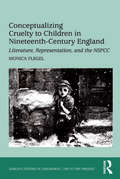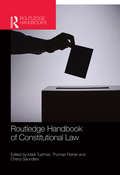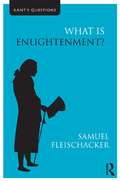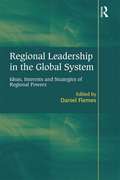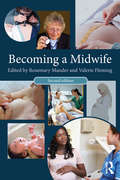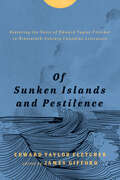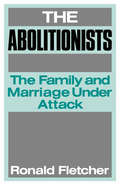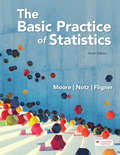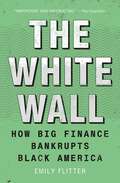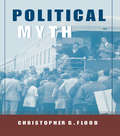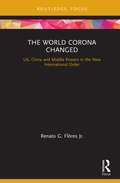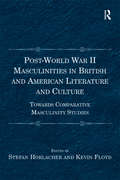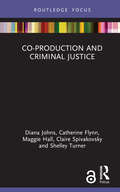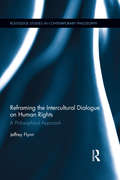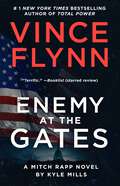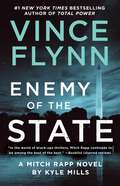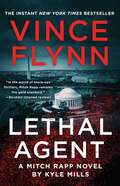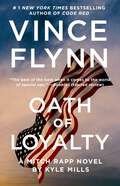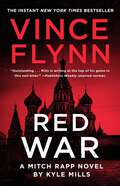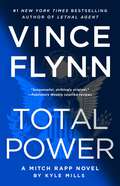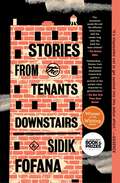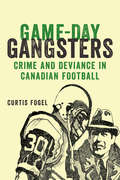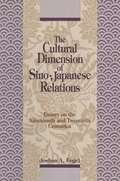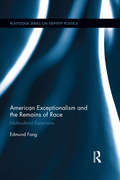Special Collections
Benetech’s Global Certified Accessible Titles
Description: Benetech’s GCA program is the first independent third-party EPUB certification to verify ebook accessibility. By creating content that is born accessible, publishers can meet the needs of all readers. Learn more: https://bornaccessible.benetech.org/
- Table View
- List View
Conceptualizing Cruelty to Children in Nineteenth-Century England
by Monica FlegelMoving nimbly between literary and historical texts, Monica Flegel provides a much-needed interpretive framework for understanding the specific formulation of child cruelty popularized by the National Society for the Prevention of Cruelty to Children (NSPCC) in the late nineteenth century. Flegel considers a wide range of well-known and more obscure texts from the mid-eighteenth century to the early twentieth, including philosophical writings by Locke and Rousseau, poetry by Coleridge, Blake, and Caroline Norton, works by journalists and reformers like Henry Mayhew and Mary Carpenter, and novels by Frances Trollope, Charles Dickens, Wilkie Collins, and Arthur Morrison. Taking up crucial topics such as the linking of children with animals, the figure of the child performer, the relationship between commerce and child endangerment, and the problem of juvenile delinquency, Flegel examines the emergence of child abuse as a subject of legal and social concern in England, and its connection to earlier, primarily literary representations of endangered children. With the emergence of the NSPCC and the new crime of cruelty to children, new professions and genres, such as child protection and social casework, supplanted literary works as the authoritative voices in the definition of social ills and their cure. Flegel argues that this development had material effects on the lives of children, as well as profound implications for the role of class in representations of suffering and abused children. Combining nuanced close readings of individual texts with persuasive interpretations of their influences and limitations, Flegel's book makes a significant contribution to the history of childhood, social welfare, the family, and Victorian philanthropy.
Routledge Handbook of Constitutional Law
by Mark Tushnet and Cheryl Saunders and Thomas FleinerThe Routledge Handbook of Constitutional Law is an advanced level reference work which surveys the current state of constitutional law. Featuring new, specially commissioned papers by a range of leading scholars from around the world, it offers a comprehensive overview of the field as well as identifying promising avenues for future research. The book presents the key issues in constitutional law thematically allowing for a truly comparative approach to the subject. It also pays particular attention to constitutional design, identifying and evaluating various solutions to the challenges involved in constitutional architecture. The book is split into four parts for ease of reference: Part One: General issues "sets issues of constitutional law firmly in context including topics such as the making of constitutions, the impact of religion and culture on constitutions, and the relationship between international law and domestic constitutions. Part Two: Structures presents different approaches in regard to institutions or state organization and structural concepts such as emergency powers and electoral systems Part Three: Rights covers the key rights often enshrined in constitutions Part Four: New Challenges - explores issues of importance such as migration and refugees, sovereignty under pressure from globalization, Supranational Organizations and their role in creating post-conflict constitutions, and new technological challenges. Providing up-to-date and authoritative articles covering all the key aspects of constitutional law, this reference work is essential reading for advanced students, scholars and practitioners in the field.
What is Enlightenment?
by Samuel Fleischacker"Have the courage to use your own understanding! - that is the motto of enlightenment." - Immanuel Kant The Enlightenment is one of the most important and contested periods in the history of philosophy. The problems it addressed, such as the proper extent of individual freedom and the challenging of tradition, resonate as much today as when they were first debated. Of all philosophers, it is arguably Kant who took such questions most seriously, addressing them above all in his celebrated short essay, An Answer to the Question: What is Enlightenment? In this engaging and lucid book, Samuel Fleischacker first explains and assesses Kant’s philosophy of Enlightenment. He then considers critics of Kant’s views - from Burke and Hegel to Horkheimer and Adorno - and figures he regards as having extended Kant’s notion of enlightenment, such as Feuerbach, Marx, Habermas, Foucault, and Rawls. Throughout, he demonstrates how Kant holds two distinct theories of enlightenment. On the one hand, Kant proposes a ‘minimal’ view, where to be enlightened is simply to engage in critical public discussion, allowing diversity of opinion to flourish. On the other, he argues that Kant elsewhere calls for a ‘maximal’ view of enlightenment, where, for example, an enlightened person cannot believe in a traditional religion. With great skill Fleischacker shows how these two views are taken in a multitude of directions by both critics and advocates of Kant’s philosophy. Arguing that Kant’s minimal enlightenment is a precondition for a healthy proliferation of cultures, religious faiths and political movements, What is Enlightenment? is a fascinating introduction to a key aspect of Kant’s thought and a compelling analysis of philosophical thinking about the Enlightenment. Including helpful chapter summaries and guides to further reading, it is ideal for anyone studying Kant or the philosophy of the Enlightenment, as well as those in related disciplines such as politics, history and religious studies.
Regional Leadership in the Global System
by Daniel FlemesWe assume that the ideas, interests and strategies of regional powers are highly significant variables, with the power to influence foreign policy. Yet while comparative research projects involving OECD-countries are fairly common, comparative research integrating developing regions is still rare, despite the fact that these countries are among the key actors of the twenty-first century. This collection emphasizes the role of regional powers in intra-regional, interregional and global contexts, analyzing the rise of regional powers from a comparative perspective. In so doing, the book explains how these powers have power to shape regional and global politics.
Becoming a Midwife
by Rosemary Mander and Valerie FlemingWhat is the reality of being a midwife in the twenty-first century? What is it like to help and support women throughout pregnancy and childbirth and into motherhood? What roles can midwives play in society? This new edition of the popular text, Becoming a Midwife, explores what it is to be a midwife, looking at the factors that make midwifery such a special profession, as well as some of the challenges. The fully updated chapters cover a variety of settings and several different stages in a woman’s pregnancy, including stories from midwives working in hospitals and in the community, as managers, supervisors and educators, and as men, women, mothers and birth activists. All chapters are narrated by contributors who introduce their own theme, recount a vignette that throws light on their understandings of midwifery and reasons for becoming (or not becoming) a midwife and any subsequent career moves. Backed up by commentaries and drawing together these insights, the editors show what it means to be a midwife today. Suitable for those contemplating a career in midwifery and providing an opportunity for reflection for more experienced midwives, this thought-provoking book is an invaluable contribution to midwifery.
Of Sunken Islands and Pestilence
by Edward Taylor FletcherEdward Taylor Fletcher was born in England in 1817 and arrived in Canada as a young boy. An important figure in Canadian literature, Fletcher’s writing was almost entirely forgotten by history. In this volume, James Gifford has gathered and annotated Fletcher’s essays and poems, writings that describe a nineteenth-century Canadian cultural life far more cosmopolitan than what we might have imagined. Fletcher was a voracious reader of works in many languages and although he was oriented toward Britain, his writing notably reflects a gaze fixed on a horizon much further away. His work therefore stands in contrast to the tendency of later Canadian writers, who focus inward on the nation, and on issues of Canadian identity. His work as a surveyor allowed him to travel across the country, observing the Canadian landscape which appears interwoven with different literary traditions in his metrically complex poetry. By recuperating Fletcher’s works, Gifford expands our view of nineteenth-century Canadian literature and establishes Fletcher as a remarkable literary figure worthy of attention.
The Abolitionists
by Ronald FletcherIn The Abolitionists (a companion volume to The Shaking of the Foundations) Ronald Fletcher turns his attention to those critics who have advocated the abolition of the family. Blaming the strength of the family for all discontents, they see the family as the deeply entrenched last bastion of an exploitative capitalist society - an obstacle to social progress and a prop for patriarchy. These new critics have exerted a growing influence throughout the 1970s and 1980s, and this is the first book to subject them to a systematic critical appraisal. The Abolitionists is a controversial and impressive defence of the modern family shaped by a century and a half of humane reform.
The Basic Practice of Statistics
by David S. Moore and William I. Notz and Michael A. FlignerThe Basic Practice of Statistics guides you through problem solving with its hallmark Four-Step Process guides you to the solution of statistical problems while emphasizing the importance of current, real data and the importance of using statistics to make decisions in the real world. The importance of interpreting data will prepare you for success in any field you pursue in your education or future career.
The White Wall
by Emily FlitterA deeply reported, &“important, and infuriating&” (The Guardian) look at the systemic racism inside the American financial services industry, from acclaimed New York Times finance reporter Emily Flitter.In 2018, Emily Flitter received a tip that Morgan Stanley had fired a Black employee without cause. Flitter had been searching for a way to investigate the deep-rooted racism in the American financial industry, and that one tip lit the sparkplug for a three-year journey through the shocking yet normalized corruption in our financial institutions. Examining local insurance agencies and corporate titans like JPMorgan Chase, BlackRock, and Wells Fargo and reveals the practices that have kept the racial wealth gap practically as wide as it was during the Jim Crow era. Flitter exposes hiring and layoff policies designed to keep Black employees from advancing to high levels; racial profiling of customers in internal emails between bank tellers; major insurers refusing to pay Black policyholders&’ claims; and the systematic denial of funding to Black entrepreneurs. She also gives a voice to victims, from single mothers to professional athletes to employees themselves: people who were scammed, lied to, and defrauded by the systems they trusted with their money, and silenced when they attempted to speak out and seek reform. Flitter connects the dots between data, history, legal scholarship, and powerful personal stories to provide a &“must-read wake-up call&” (Valerie Red-Horse Mohl, president of KNOWN Holdings) about what it means to bank while Black. As America continues to confront systemic racism and pave a path forward, The White Wall is an essential examination of one of its most caustic contributors.
Political Myth
by Christopher FloodFirst Published in 2002. Routledge is an imprint of Taylor & Francis, an informa company.
The World Corona Changed
by Renato G. Flôres Jr.This concise book addresses the new geopolitical realm which will ensue from the coronavirus pandemic, exploring how the main international actors will position themselves in the post-Covid-19 realities. Contrary to some analysts, the author argues that, rather than an acceleration of existing or latent trends, the post-coronavirus world will present novel and otherwise unexpected features and challenges. Even the previously ongoing tension between the US and China will morph into an additionally complex and multidimensional puzzle, making it much more difficult to manage. In this book, the author provides a few basic tools for further analysis of the evolution of the new world situation, in an innovative way. Two main axes orient how analyses will be performed: the shape and evolution of the US–China relationship (and their interactions with other international actors), and the degree of co-operation — for example, on climate change and security arrangements — in the transformed world. The author suggests that the pandemic will be responsible for new emergences and fractures, and yet our ever more divided world will at the same time support unifying forces and links, highly dependent on technological developments being shared and/or protected. The primary objective of this book is to draw a broad picture which will serve as a frame of reference for analysing how the community of international actors will react to major challenges — be they expected or unanticipated — in the post-pandemic world. It will be of immense interest to analysts, academics, politicians and students of international relations, geopolitics, strategy, and world affairs.
Post-World War II Masculinities in British and American Literature and Culture
by Stefan Horlacher and Kevin FloydAnalyzing literary texts, plays, films and photographs within a transatlantic framework, this volume explores the inseparable and mutually influential relationship between different forms of national identity in Great Britain and the United States and the construction of masculinity in each country. The contributors take up issues related to how certain kinds of nationally specific masculine identifications are produced, how these change over time, and how literature and other forms of cultural representation eventually question and deconstruct their own myths of masculinity. Focusing on the period from the end of World War II to the 1980s, the essays each take up a topic with particular cultural and historical resonance, whether it is hypermasculinity in early cold war films; the articulation of male anxieties in plays by Arthur Miller, David Mamet and Sam Shepard; the evolution of photographic depictions of masculinity from the 1960s to the 1980s; or the representations of masculinity in the fiction of American and British writers such as Patricia Highsmith, Richard Yates, John Braine, Martin Amis, Evan S. Connell, James Dickey, John Berger, Philip Roth, Frank Chin, and Maxine Hong Kingston. The editors and contributors make a case for the importance of understanding the larger context for the emergence of more pluralistic, culturally differentiated and ultimately transnational masculinities, arguing that it is possible to conceptualize and emphasize difference and commonality simultaneously.
Co-production and Criminal Justice
by Diana Johns and Catherine Flynn and Maggie Hall and Claire Spivakovsky and Shelley TurnerThis book explores practical examples of co-production in criminal justice research and practice. Through a series of seven case studies, the authors examine what people do when they co-produce knowledge in criminal justice contexts: in prisons and youth detention centres; with criminalised women; from practitioners’ perspectives; and with First Nations communities. Co-production holds a promise: that people whose lives are entangled in the criminal justice system can be valued as participants and partners, helping to shape how the system works. But how realistic is it to imagine criminal justice "service users" participating, partnering, and sharing genuine decision-making power with those explicitly holding power over them? Taking a sophisticated yet accessible theoretical approach, the authors consider issues of power, hierarchy, and different ways of knowing to understand the perils and possibilities of co-production under the shadow of "justice". In exploring these complexities, this book brings cautious optimism to co-production partners and project leaders. The book provides a foundational text for scholars and practitioners seeking to apply co-production principles in their research and practice. With stories from Australia, the United Kingdom, and Ireland, the text will appeal to the international community. For students of criminology and social work, the book’s critical insights will enhance their work in the field.
Reframing the Intercultural Dialogue on Human Rights
by Jeffrey FlynnIn this book, Flynn stresses the vital role of intercultural dialogue in developing a non-ethnocentric conception of human rights. He argues that Jürgen Habermas’s discourse theory provides both the best framework for such dialogue and a much-needed middle path between philosophical approaches that derive human rights from a single foundational source and those that support multiple foundations for human rights (Charles Taylor, John Rawls, and various Rawlsians). By analyzing the historical and political context for debates over the compatibility of human rights with Christianity, Islam, and "Asian Values," Flynn develops a philosophical approach that is continuous with and a critical reflection on the intercultural dialogue on human rights. He reframes the dialogue by situating it in relation to the globalization of modern institutions and by arguing that such dialogue must address issues like the legacy of colonialism and global inequality while also being attuned to actual political struggles for human rights.
Enemy at the Gates
by Vince Flynn and Kyle MillsMitch Rapp, the CIA&’s top operative, searches for a high-level mole with the power to rewrite the world order in this riveting thriller from #1 New York Times bestselling author Vince Flynn, written by Kyle Mills.Mitch Rapp has worked for several presidents over his career, but Anthony Cook is unlike any he&’s encountered before. Cunning and autocratic, he feels no loyalty to America&’s institutions and is distrustful of the influence Rapp and CIA director Irene Kennedy have in Washington. When Kennedy discovers evidence of a mole scouring the Agency&’s database for sensitive information on Nicholas Ward, the world&’s first trillionaire, she assigns Rapp the task of protecting him. In doing so, he finds himself walking an impossible tightrope: Keep the man alive, but also use him as bait to uncover a traitor who has seemingly unlimited access to government secrets. As the attacks on Ward become increasingly dire, Rapp and Kennedy are dragged into a world where the lines between governments, multinational corporations, and the hyper-wealthy fade. An environment in which liberty, nationality, and loyalty are meaningless. Only the pursuit of power remains. With &“sizzling storytelling at its level best&” (The Providence Journal), Kyle Mills has created another suspenseful thriller that not only echoes the America of today, but also offers a glimpse into its possible future.
Enemy of the State
by Vince Flynn and Kyle Mills&“In the world of black-op thrillers, Mitch Rapp continues to be among the best of the best&” (Booklist, starred review), and he returns in the #1 New York Times bestselling series alone and targeted by a country that is supposed to be one of America&’s closest allies.After 9/11, the United States made one of the most secretive and dangerous deals in its history—the evidence against the powerful Saudis who coordinated the attack would be buried and in return, King Faisal would promise to keep the oil flowing and deal with the conspirators in his midst. But when the king&’s own nephew is discovered funding ISIS, the furious President gives Rapp his next mission: he must find out more about the high-level Saudis involved in the scheme and kill them. The catch? Rapp will get no support from the United States. Forced to make a decision that will change his life forever, Rapp quits the CIA and assembles a group of independent contractors to help him complete the mission. They&’ve barely begun unraveling the connections between the Saudi government and ISIS when the brilliant new head of the intelligence directorate discovers their efforts. With Rapp getting too close, he threatens to go public with the details of the post-9/11 agreement between the two countries. Facing an international incident that could end his political career, the President orders America&’s intelligence agencies to join the Saudis&’ effort to hunt the former CIA man down. Rapp, supported only by a team of mercenaries with dubious allegiances, finds himself at the center of the most elaborate manhunt in history. With white-knuckled twists and turns leading to &“an explosive climax&” (Publishers Weekly), Enemy of the State is an unputdownable thrill ride that will keep you guessing until the final page.
Lethal Agent
by Vince Flynn and Kyle MillsAn unprecedented and terrifying bioterrorism plot threatens to kill millions in the midst of a divisive presidential election in this &“gut punch of a tale that exploits our greatest fears&” (The Providence Journal) from the #1 New York Times bestselling Mitch Rapp series. A toxic presidential election is underway in an America already badly weakened by internal divisions. While politicians focus entirely on maintaining their own power, ISIS kidnaps a brilliant French microbiologist and forces him to begin manufacturing anthrax. Slickly produced videos chronicling his progress and threatening an imminent attack are posted to the internet, intensifying the hysteria gripping the United States. ISIS recruits a Mexican drug cartel to smuggle the bioweapon across the border, but it&’s really just a diversion. The terrorist organization needs to keep Mitch Rapp and Irene Kennedy distracted long enough to weaponize a deadly virus that they stumbled upon in Yemen. If they succeed, they&’ll trigger a pandemic that could rewrite the world order. Rapp embarks on a mission to infiltrate the Mexican cartels and track down the ISIS leader who he failed to kill during their last confrontation. But with Washington&’s political elite increasingly lined up against him, he knows he&’ll be on his own. Another stellar and white-knuckled thriller, Lethal Agent proves that &“Mitch Rapp is the hero we need, maybe now more than ever&” (The Real Book Spy).
Oath of Loyalty
by Vince Flynn and Kyle MillsNamed the Best Thriller of 2022 by The Real Book Spy Mitch Rapp confronts a very different kind of killer in this explosive &“and entertaining from the first page to the last&” (The Providence Journal) addition to Vince Flynn&’s #1 New York Times bestselling series, written by Kyle Mills.With President Anthony Cook convinced that Mitch Rapp poses a mortal threat to him, CIA Director Irene Kennedy is forced to construct a truce between the two men. The terms are simple: Rapp agrees to leave the country and stay in plain sight for as long as Cook controls the White House. In exchange, the administration agrees not to make any moves against him. This fragile détente holds until Cook&’s power-hungry security adviser convinces him that Rapp has no intention of honoring their agreement. To put him on the defensive, they leak the identity of his partner, Claudia Gould. As Rapp races to neutralize the enemies organizing against her, he discovers that a new type of assassin is on her trail. Known only as Legion, the shadowy killer has created a business model based on double-blind secrecy. Neither the assassin nor the client knows the other&’s identity. Because of this, Legion can&’t be called off nor can they afford to fail. No matter how long it takes—weeks, months, years—they won&’t stand down until their target is dead. Faced with the seemingly impossible task of finding and stopping Legion, Rapp and his people must close ranks against a world that has turned on them in this white-knuckled thriller filled with &“plenty of action and political intrigue&” (Booklist).
Red War
by Vince Flynn and Kyle MillsThis instant #1 New York Times bestseller and &“modern techno-thriller&” (New York Journal of Books) follows covert operative Mitch Rapp in a terrifying race to stop Russia&’s gravely ill leader from starting a full-scale war with NATO.When Russian president Maxim Krupin discovers that he has inoperable brain cancer, he&’s determined to cling to power. His first task is to kill or imprison any countrymen threatening him. But when his illness becomes increasingly serious, he decides on a dramatic diversion—war with the West. Upon learning of Krupin&’s condition, CIA director Irene Kennedy understands that the US is facing an opponent who has nothing to lose. The only way to avoid a confrontation that could leave millions dead is to send Mitch Rapp to Russia under impossibly dangerous orders. With the Kremlin&’s entire security apparatus hunting him, he must find and kill a man many have deemed the most powerful in the world. The fate of the free world hangs in the balance in this &“timely, explosive novel that shows yet again why Mitch Rapp is the best hero the thriller genre has to offer&” (The Real Book Spy).
Total Power
by Vince Flynn and Kyle Mills&“One of the best thriller writers on the planet.&” —The Real Book Spy In the next thriller in the #1 New York Times bestselling Mitch Rapp series, it&’s a race against the clock when ISIS takes out the entire US power grid and throws the country into chaos.When Mitch Rapp captures ISIS&’s top technology expert, he reveals that he was on his way to meet a man who claims to have the ability to bring down America&’s power grid. Rapp is determined to eliminate this shadowy figure, but the CIA&’s trap fails. The Agency is still trying to determine what went wrong when ISIS operatives help this cyber terrorist do what he said he could—plunge the country into darkness. With no concept of how this unprecedented act was accomplished, the task of getting the power back on could take months. Perhaps even years. Rapp and his team embark on a desperate search for the only people who know how to repair the damage—the ones responsible. But his operating environment is like nothing he&’s experienced before. Computers and communication networks are down, fuel can no longer be pumped from gas stations, water and sanitation systems are on the brink of collapse, and the supply of food is running out. Can Rapp get the lights back on before America descends irretrievably into chaos? This compulsive thriller proves once again that the Mitch Rapp series is &“the best of the best when it comes to the world of special ops&” (Booklist, starred review).
Transfer of Power
by Vince FlynnThis &“roller-coaster, edge-of-your-seat thriller&” (Star-Tribune, Minneapolis) in the #1 New York Times bestselling Mitch Rapp series follows the CIA&’s top operative as he must stop a massacre in Washington, DC, and save the president before terrorists reach the White House. The stately calm of a Washington morning is shattered when a group of terrorists descends, killing dozens and taking nearly one hundred hostages as they try to infiltrate the White House. The Secret Service immediately evacuates the president to an underground bunker—and while officials argue over how best to negotiate with the enemy, Mitch Rapp, the CIA&’s top counterterrorism operative, moves stealthily among the hidden corridors and secret passageways of the nation&’s capital to save the hostages before the terrorists reach the president. But there&’s someone waiting in the wings, someone within the Washington elite, who is determined to see Rapp&’s rescue mission fail. With heart-pounding thrills and feverish pacing, Transfer of Power &“mixes in a spicy broth of brutal terrorists, heroic commandos, and enough secret-agent hijinks to keep the confrontation bubbling until its flag-raising end&” (Publishers Weekly).
Stories from the Tenants Downstairs
by Sidik FofanaSet in a Harlem high rise, a stunning debut about a tight-knit cast of characters grappling with their own personal challenges while the forces of gentrification threaten to upend life as they know it.Like Gloria Naylor&’s The Women of Brewster Place and Lin Manuel Miranda&’s In the Heights, Sidik Fofana&’s electrifying collection of eight interconnected stories showcases the strengths, struggles, and hopes of one residential community in a powerful storytelling experience. Each short story follows a tenant in the Banneker Homes, a low-income high rise in Harlem where gentrification weighs on everyone&’s mind. There is Swan in apartment 6B, whose excitement about his friend&’s release from prison jeopardizes the life he&’s been trying to lead. Mimi, in apartment 14D, who hustles to raise the child she had with Swan, waitressing at Roscoe&’s and doing hair on the side. And Quanneisha B. Miles, a former gymnast with a good education who wishes she could leave Banneker for good, but can&’t seem to escape the building&’s gravitational pull. We root for these characters and more as they weave in and out of each other&’s lives, endeavoring to escape from their pasts and blaze new paths forward for themselves and the people they love. Stories from the Tenants Downstairs brilliantly captures the joy and pain of the human experience and heralds the arrival of a uniquely talented writer.
Game-Day Gangsters
by Curtis FogelIn the complicated interaction between sport and law, much is revealed about the perception and understanding of consent and tolerable deviance. When a football player steps onto the field, what deviations from the rules of the game are considered acceptable? And what risks has the player already accepted by voluntarily participating in the sport? In the case of Canadian football, acts of on-field violence, hazing, and performance-enhancing drug use that would be considered criminal outside the context of sport are tolerated and even promoted by team and league administrators. The manner in which league review committees and the Canadian legal system understand such actions highlights the challenges faced by those looking to protect players from the dangers of the sport. Although there has been some discussion of legal and institutional reforms dealing with crime and deviance in Canadian sport, little exists in the way of sports law, with most cases falling into the legal categories of criminal, administrative, or civil law. In Game-Day Gangsters, Fogel argues for a review of the systems by which Canadian football is governed and analyzes the reforms proposed by football leagues and by players. Juxtaposing material from interviews with football players and administrators and from media files and legal cases, he explores the discrepancies between the players’ own experiences and the institutional handling of disciplinary matters in junior, university, and professional football leagues across the country.
The Cultural Dimensions of Sino-Japanese Relations
by Joshua A. FogelPresents the perceptions that the Chinese and the Japanese have of each other, and the information that helped to fuel those perceptions. There are two sections: China in Japan, debating the Asiatic Mode of Production and kyodotai; and Japan in China, covering the Manchurian Railway.
American Exceptionalism and the Remains of Race
by Edmund FongIn contemporary American political culture, claims of American exceptionalism and anxieties over its prospects have resurged as an overarching theme in national political discourse. Yet never very far from such debates lie animating fears associated with race. Fears about the loss of national unity and trust often draw attention to looming changes in the racial demographics of the body politic. Lost amid these debates are often the more complex legacies of racial hybridity. Anxieties over the disintegration of the fabric of American national identity likewise forget not just how they echo past fears of subversive racial and cultural difference, but also exorcise as well the changing nature of work and social interaction. Edmund Fong’s book examines the rise and resurgence of contemporary forms of American exceptionalism as they have emerged out of contentious debates over cultural pluralism and multicultural diversity in the past two decades. For a brief time, serious considerations of the force of multiculturalism entered into a variety of philosophical and policy debates. But in the American context, these debates often led to a reaffirmation of some variant of American exceptionalism with the consequent exorcism of race within the avowed norms and policy goals of American politics. Fong explores how this "multicultural exorcism" revitalizing American exceptionalism is not simply a novel feature of our contemporary political moment, but is instead a recurrent dynamic across the history of American political discourse. By situating contemporary discourse on cultural pluralism within the larger frame of American history, this book yields insight into the production of hegemonic forms of American exceptionalism and how race continues to haunt the contours of American national identity.
